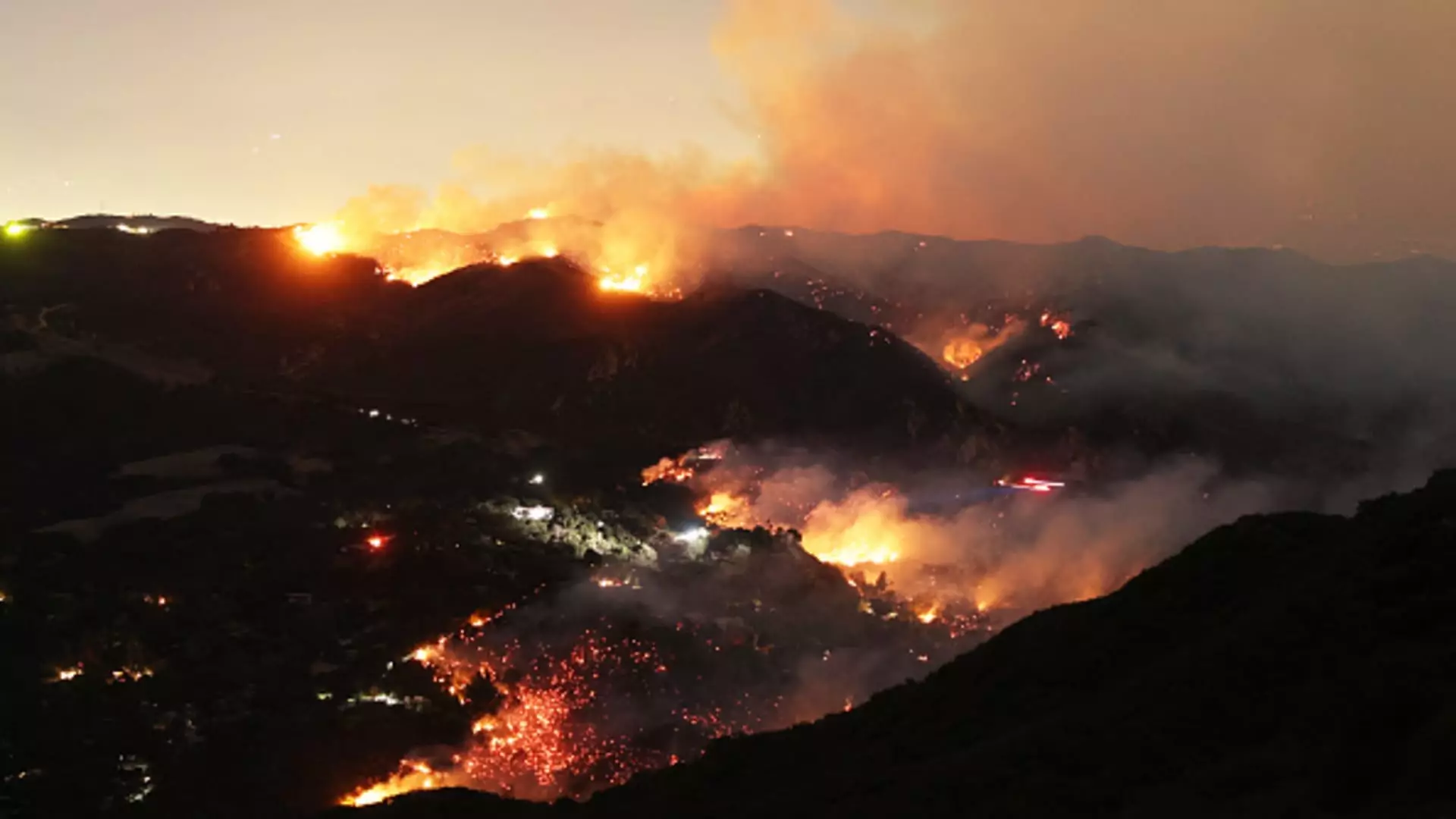Southern California faces an unprecedented wildfire crisis. Fires have blazed through the Greater Los Angeles area for over a week, consuming approximately 40,000 acres and incinerating more than 12,300 structures, as reported by NBC News. A staggering 88,000 residents are currently under mandatory evacuation orders with another 89,000 in precautionary evacuation zones. This crisis not only puts lives at risk but also leads to huge financial losses, with insured damages estimated at nearly $20 billion by prominent financial institutions like JPMorgan and Wells Fargo. As the flames continue to wreak havoc, many residents find themselves grappling with uncertainty, desperately seeking ways to navigate this catastrophic event.
In the aftermath of such disasters, one of the first crucial steps for affected residents is to initiate the insurance claim process. Karl Susman, an insurance broker and president of Susman Insurance Services in Los Angeles, emphasizes the importance of filing claims promptly. Many residents may hesitate to act due to lack of information, but Susman assures that immediate action is possible even without all necessary details. “Get your claim filed as quickly as you can,” he advises, highlighting that delays can occur as insurers deal with a surge of claims during such disasters.
Experts suggest that whether you are a homeowner or a renter, you can follow similar processes to secure compensation. Renters, for example, typically enjoy coverage that mirrors homeowners’ policies, including access to essential resources for navigating insurance claims. Shannon Martin, a licensed insurance agent from Bankrate.com, emphasizes this similarity but also urges renters to inquire about additional living expenses in advance. This can make a significant difference during a time when residents are grappling with housing instability.
For those affected, understanding various types of insurance coverage can alleviate some of the financial burden. “Loss of use” coverage, for instance, under homeowner’s policies provides a vital safety net for those who cannot return to their homes. Jeremy Porter, a climate implications expert, explains that such coverage assists in securing temporary accommodation until residents can return to their properties.
Documentation is vital during this process. Douglas Heller, director of insurance at the Consumer Federation of America, urges individuals to meticulously record all transactions, conversations with insurers, and receipts for expenses incurred in the wake of a disaster. This thorough documentation will ultimately facilitate a smoother claims process and ensure that residents are adequately reimbursed for their losses.
Another critical step for residents who have been severely impacted is managing utility services. Susman recommends contacting utility companies to halt service – a crucial move for those whose homes have suffered extensive damage. By doing this, residents may temporarily alleviate financial obligations associated with these services during this challenging period.
Furthermore, individuals who have lost vehicles in the fire should review their auto insurance policies for comprehensive coverage options. Susman points out that vehicle losses are typically addressed under auto insurance, so policyholders must check their terms carefully to ensure they are following the right procedures for claims.
In the wake of catastrophic damage, property tax considerations should not be overlooked. Homeowners who have sustained over $10,000 in damages or have lost their homes entirely can file for property tax reductions. This often-overlooked option can provide significant financial relief as residents begin to recover. Susman highlights that many homeowners are unaware of this process, urging vigilance and prompt action.
For those without existing insurance coverage, government assistance programs are available. President Biden recently announced a one-time relief payment through FEMA for wildfire victims, emphasizing the government’s commitment to support recovery efforts. Individuals can apply for assistance through platforms like DisasterAssistance.gov or by calling FEMA’s hotline.
Local support is invaluable during disasters, and various organizations and workshops are stepping up to assist residents. The California Insurance Commission is hosting workshops that aim to educate affected individuals about navigating insurance processes in conjunction with government support. These events, also featuring collaboration with community organizations, provide platforms for residents to ask questions and receive guidance on the complex recovery journey ahead.
As fires continue to devastate Southern California, residents must remain proactive and informed. Although the path to recovery seems daunting, understanding insurance options, seeking community support, and leveraging government resources can help affected individuals reclaim their lives and rebuild after this destruction. The community’s resilience is tested in times like these, and it is through collective effort that healing begins.

